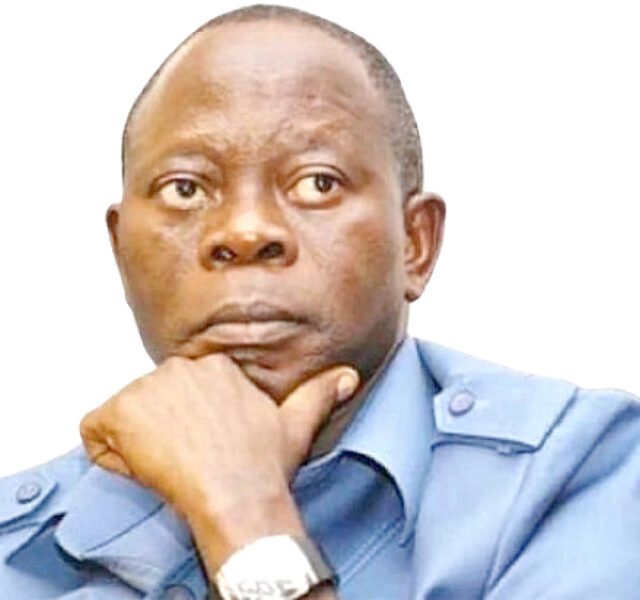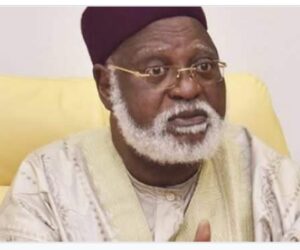The Senator representing Edo North, Adams Oshiomhole, on Tuesday, criticised the manner in which bills were being passed into law in the Senate, accusing the upper legislative chamber under Senate President Godswill Akpabio of acting like a “rubber-stamp” to the executive arm of government.
Oshiomhole, a former national chairman of the ruling All Progressives Congress (APC), raised his concerns during the plenary while Senators were considering four concurrence Bills from the House of Representatives. The bills included proposals to amend the National Examination Council (NECO) Act, establish the National Board for Arabic and Islamic Studies, the Nigeria Weights and Measures Regulatory Agency, and the Chartered Institute of Training and Development of Nigeria.
The bills, presented by Senate Leader Opeyemi Bamidele, were taken through first, second, and third readings on the same day, a common practice for concurrence bills. With no objections raised during the Committee of the Whole, they were all swiftly passed by majority vote.
However, shortly after their passage, Oshiomhole rose to object the trend, warning that the Senate was “rushing” legislative approvals without adequate scrutiny or understanding of the documents.
“I’m seriously troubled with the way in which we are going about making these laws,” he said. “This primary law was distributed just a minute ago, and they are four in number. Even if we are wizkids… because it is done for nothing that the constitution provided for a bicameral legislature. We are not meant to rubber-stamp, and the way you are reading this, it’ll take a genius to be able to make a point.”
Oshiomhole continued: “We are making laws, sir. I want it to be on record that I am troubled by the way in which we are rushing without details. Tomorrow, when these laws are challenged, it will be said that we were in the Senate when they were passed. I do not see the merit of rushing. I do not see the merit of giving four bills to rubber-stamp. If that was the case, we need unicameral, not bicameral legislature.”
The former labour leader also questioned the relevance of one of the bills, the proposed Chartered Institute of Training and Development of Nigeria, arguing that the proliferation of such institutions was unnecessary.
“What is the meaning of training and Nigeria’s development? When we create laws for every training and development, it does not make sense to me,” he said. “I don’t have the privilege to read and understand why it should merit the time we are spending on it. With due respect, sir, laws are not motions, and they are supposed to be interpreted by courts of law. So, I’m very troubled.”
In response, Deputy Senate President Barau Jibrin, who presided over the plenary, acknowledged Oshiomhole’s concerns and directed the chairman of the Senate Committee on Rules and Business, Senator Titus Zam, to ensure that lawmakers receive copies of draft bills at least two days before consideration.
“Chairman of Rules and Business, please endeavour to give these bills at least two days before they are considered,” Jibrin said.
He explained that concurrence bills are typically fast-tracked because they have already undergone legislative scrutiny and public hearings in the House of Representatives.
“The reason why we try to treat bills from the House of Representatives in this manner is because we believe that those bills have gone through all the processes, public hearings and expert input,” Jibrin said. “But what you said is right. Even at that, we have a bicameral legislature, we also need to put our eyes on whatever goes on.”








